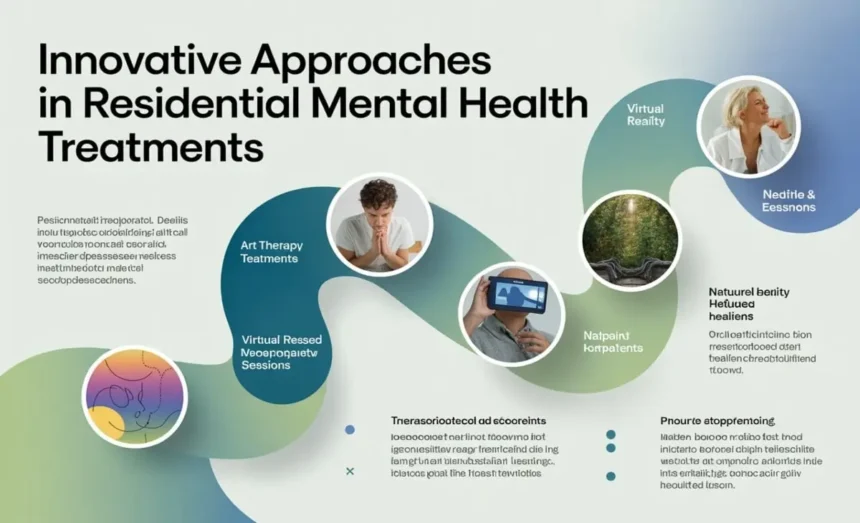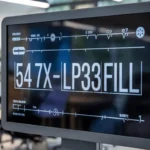There has been a major improvement in treating mental health in the last few years. Rather than just relying on medication or therapy appointments, a lot of people are seeking immersive care alternatives that provide structure, safety, and support. Residential mental health treatments provide a dedicated and safe setting for people to receive the help they need to fully concentrate on their recovery, free from the distractions and stressors of everyday life.
Residential programs signify another advancement in the field of mental health. It combines clinical and technological advancements and holistic practices to effect real and lasting change.
Emerging Therapies in Residential Mental Health Treatments
New residential mental health treatments jump a variety of innovative practices that extend beyond the conventional counseling framework. These programs integrate evidence-based psychological practices with experiential mind-body-spirit approaches.
One advancement is Trauma-Informed Care. It examines and seeks to help clients understand how their past may influence their current feelings and behaviors to help them heal emotionally without causing further trauma.
Eye Movement Desensitization and Reprocessing (EMDR) is another innovation designed to help clients work through traumatic memories and lessen distress. EMDR is common in residential programs for clients with trauma, anxiety, and depression.
Techniques such as Dialectical Behavior Therapy (DBT) and Acceptance and Commitment Therapy (ACT) have developed residents’ emotional regulation, resilience, and mindfulness.
Compassion, science, and structure work harmoniously in all residential programs to make sure every individual receives tailored care, healing, and emotional strength that is lifelong.
The Role of Technology in Residential Mental Health Treatments
Technology is important for treatment outcomes in the modern world. Increased technology helps in diagnostics, tracking patient progress, and optimally engaging patients in many residential mental health treatments.
One such example is Virtual Reality (VR) Therapy. This technology helps patients exposed to fear and helps them practice mindfulness in immersive, dynamic environments. A person living with social anxiety, for example, can use VR to simulate conversation and help them reduce their fear of talking to people.
Wearable technology and smartphone applications help track and monitor the changes in a person’s emotional state, sleep patterns, and body stress levels. This raw data helps the therapist adapt the treatment plan in real time and catch the signs of emotional distress, relapse, and disorganized patterns early.
Telehealth also ensures continuity of care. After finishing a residential program, clients can keep up their therapy appointments virtually, maintaining regular support and accountability.
Technology enhances, not replaces, human empathy. By integrating data-driven approaches with personalized care, residential centers encourage a more flexible and efficient recovery continuity.
Holistic Methods Enhancing Mental Health Recovery
Recovery is most effective when it is not limited to the symptoms of mental illness. Residential mental health treatments incorporate holistic practices to support the recovery process.
Yoga, art therapy, music therapy, and equine-assisted therapy provide opportunities for residents to express emotions that might be difficult to articulate. These practices encourage mindfulness, help manage stress, and promote self-awareness.
Recovery also involves proper nutrition. A well-balanced diet boosts the body’s energy and helps improve mood. Numerous residential facilities have nutritionists on the staff to prepare individualized meal plans to support the clients’ emotional and physical recovery.
Mindfulness meditation and specific breathwork practices also encourage recovery by helping clients ease anxious and depressive symptoms and providing emotional stability during difficult times.
Holistic therapy helps clients integrate to build a base for mental health recovery that is likely to be sustained.
Collaborative Care Models in Residential Settings
One of the major benefits of residential treatment is collaboration among professionals. In residential mental health treatments, each member of the multidisciplinary team designs and implements care plans to address the unique needs of each individual.
Psychiatrists monitor the prescriptions, psychologists and therapists run individual and group therapies, while case managers ensure the treatment remains coordinated. This integrated approach guarantees that every part of recovery is addressed.
Another vital part of collaborative care is the integration of family members. Family therapy aids in regaining lost trust and dysfunctional communication, equipping family members to assist in the recovery process.
Peer Support also remains vital. Interacting with others who experience the same problems minimizes feelings of isolation and fosters a sense of connection. Individuals learn to rely on the community instead of isolating themselves and using harmful coping mechanisms.
With professionals, family, and peers working together, recovery is a joint assignment.
Addressing Stigma and Building Community Support
Although stigmas are becoming less prevalent, they still act as a barrier for people trying to obtain mental health help. Residential programs are changing the stigmas by introducing understanding, education, and integration.
In the United States, it’s usual for staff and clients to speak openly about mental illness and recovery in a residential mental health treatment. They understand that it is a health condition that deserves attention and treatment, and is not a sign of weakness. Considering the stigma of mental illness and treatment, it is commendable for these treatment centers to consider the mental well-being of their clients. Given the stigma and fear associated with it, people will tend to speak about their mental issues when the environment is friendly and welcoming.
Involving the community is of great value as well. Numerous residential programs work in collaboration with community organizations for sponsorship of awareness events and educational programs. As these initiatives develop, the clients will feel a sense of community and support that will continue to assist them in their reintegration into society following treatment, and will enable them to regain a sense of purpose and self-confidence that may have been lost during their treatment.
In mental health, recovery is a set of steps leading to eventual full participation in everyday life. Progress and success in treatment, as in life, are best achieved in the absence of stigma.
Measuring Success and Outcomes in Mental Health Treatments
When working with a client, the staff not only focuses on symptom reduction, but that cue also applies to modern residential mental health treatment scenarios. Other criteria need to be looked at to evaluate the success of treatment, and that would be the level of self-awareness the client possesses, the quality of life, and the growth as a person.
In most residential mental health treatment scenarios, the staff will look to reclaim lost metrics as a means of determining treatment success: emotional health, behavioral function, and steps to goal control. For self-defined success, it is most likely to have consistency in their recovery plan to achieve self-defined goals. For certain individuals, treatment success is summed up in lost relationships to restore, for others it may be the anticipated goal of getting to school, and for many it will be recapturing that sense of joy.
The progress you’ve made is worth keeping. For that reason, follow-up support is needed. Follow-up care, continued treatment, and developing an aftercare plan assist people in moving from residential structured living to autonomous living.
Shifting from a short-term focus to a long-term outlook is also a hallmark of residential programs. This change also aids in building wellness and resilience.
Conclusion
The change is also likely to be driven by residential mental health treatments. These programs incorporate innovative, compassionate, and evidence-based care.
The options available in residential treatment care are expanding and include an integration of advanced mental health treatment and technology, holistic healing practices, and collaborative models of care that build community.
Recovery is about more than surviving; it’s about being active, growing, and living with one’s purpose. If you or someone you care about is living with mental illness and is willing to take this step, contact Touchstone Recovery Center. Their devoted, compassionate, innovative staff deliver results with residential programs tailored to assist every person in achieving emotional health and personal empowerment.







